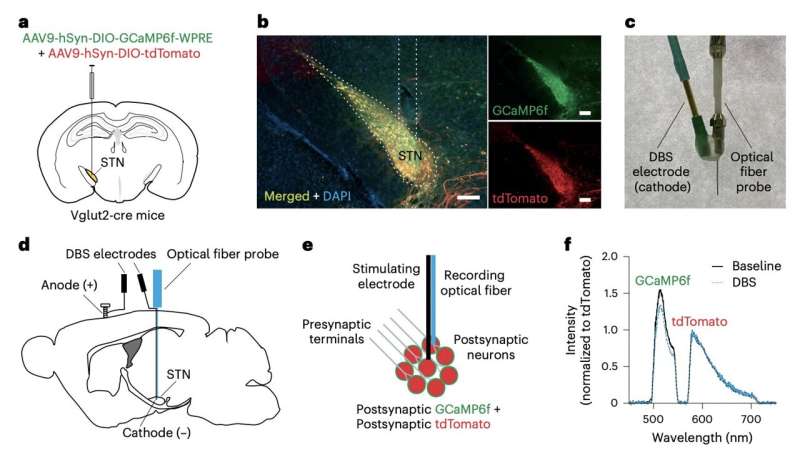Due to its invasive nature, this procedure is typically reserved for patients who do not respond well to less-invasive treatment strategies. Although its therapeutic potential is well-documented, the neurobiological mechanisms through which it eases neuropsychiatric symptoms remain poorly understood.
Researchers at National Institutes of Health in Durham, N.C., U.S., recently carried out a study on mice aimed at better understanding how DBS affects the brain and shedding light on the processes that might underpin its therapeutic value.
Their findings, published in Nature Neuroscience, suggest that the selective inhibition of neurons in a specific brain area mediates the therapeutic effects of this invasive procedure, while also proposing an alternative, less-invasive strategy that might yield similar results.

